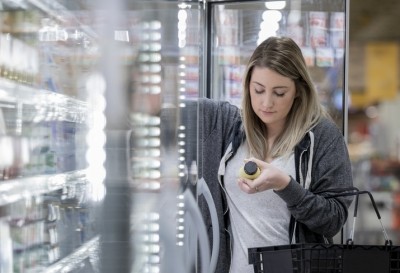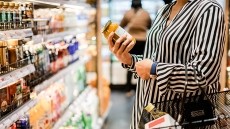Buzzing on sustainability: Half of all coffee launches carry ethical or environmental claim

According to market insight firm Mintel, consumers around the globe are ‘drinking coffee with a conscience’.
The company’s Global New Product Database (GNPD) has revealed that of all new coffee product launches around the world in 2020, nearly half (48%) carried an ethical or environmental claim.
This, according to the firm, is close to twice the number from almost a decade ago, when just 25% of coffee launches were sustainable.
A breakdown of the claims reveals 30% carried an environmentally friendly claim, 28% a human rights claim, 29% a sustainability claim (concerning habitat and/or resources), 25% an ethical claim related to the product’s environmentally friendly packaging, and 21% carried a claim concerning recycling.
Fewer products pointed to their biodegradability (3.3%), partnerships with charity (2%), and carbon neutrality (1.3%), with ethical claims relating to the lack of toxins and concerns for animal welfare standards carried on 0.8% and 0.2% of the coffee products respectively.
The market insight firm deemed coffee pods/capsules to be the category’s ‘most controversial format’, due to the amount of landfill waste they create. Pods/capsules accounted for a quarter (24%) of global coffee launches in 2020, yet just two in five pods (39%) carried a recyclable claim.
As it stands, one in ten pods/capsules carry a biodegradable claim (11%) and/or a compostable claim (10%).
When comparing the coffee category to the total food and drink market, the GNPD indicated it fares well. In Europe, just 35% of F&B products carry a sustainable claim, compared to 64% of coffee launches across the bloc.
“Undoubtedly, sustainability will be the defining issue for the coffee industry over the next 20 years. Consumer expectations of coffee brands will rise dramatically as eco-anxiety replaces pandemic paranoia,” according to report author and Mintel Food & Drink associate director Jonny Forsyth.
“Consumers are becoming more aware of carbon emissions and coffee is one of the worst offenders. The more activist-minded younger generation will show less tolerance for waste, especially pods that are recyclable but rarely recycled, with launches of ‘greener’ pods expected to grow fast.”
Forsyth also believes COVID-19 has made consumers more sensitive to inequalities. Most farmers are ‘poorly paid’ despite coffee’s ‘huge profits’ and use of fair trade claims, he said.
“Brands will need to help farmers navigate global warming to avoid the loss of supply and livelihoods. Brands will need to be much more ‘hands on’ and put their sustainable values and actions at the heart of their brand message.”
The coronavirus pandemic, and consequent lockdown measures, have also accelerated the ‘in-home barista’ trend, noted Mintel. Indeed, in 2020, total global packaged coffee launches increased by 8% compared to 2019 figures.
Packaged coffee now accounts for close to two-thirds of global coffee innovation collectively, whether that be in pods (24%), ground (23%), or beans (15%) format.
Breaking down the trend into regions, Mintel’s data indicated ‘in-home’ baristas are more prevalent in western markets, where pods, beans, and ground coffee account for 77% of all coffee launches. In comparison, the same category accounts for just 44% in Asia, Latin America, the Middle East, and Africa. In these areas, mixes (20%). Instant (18%), and ready-to-drink (19%) varieties dominate.
“The COVID-19 pandemic created a fascinating year for coffee, especially as it saw the reversal of a long-term trend. For years, coffee shops have taken share from retail coffee, but the pandemic forced drinkers to make more coffee in-home and replicate the quality of fresh on-premise brews,” noted Forsyth.
“For many, the key to coffee making has moved beyond the desire for it to simply be ‘good coffee’; it’s now about brewing creative coffee, adding the same style and aspiration you would see in a coffee shop.
“We predict that in as little as two years’ time, this trend will be further developed as coffee-making technology improves and machine prices reduce. Moving forward, retail brands need to behave more like coffee shops in order to engage with consumers. This means using social media and new product innovation to offer customers choice, community, and storytelling.”
































